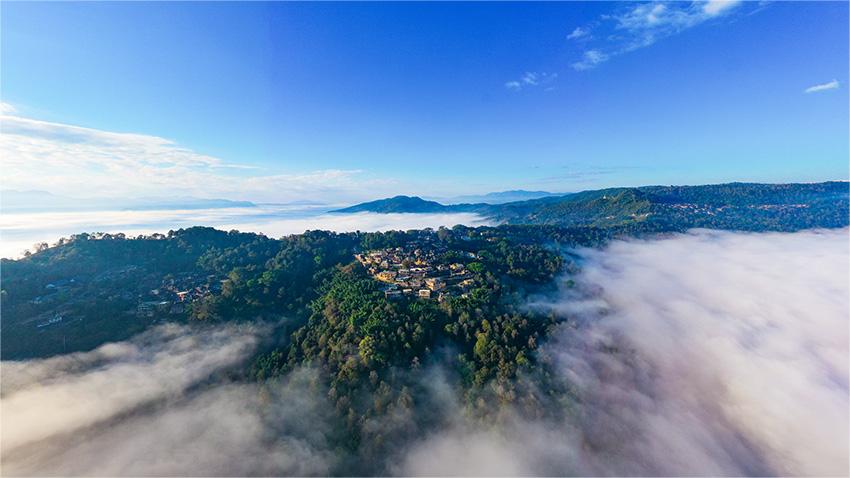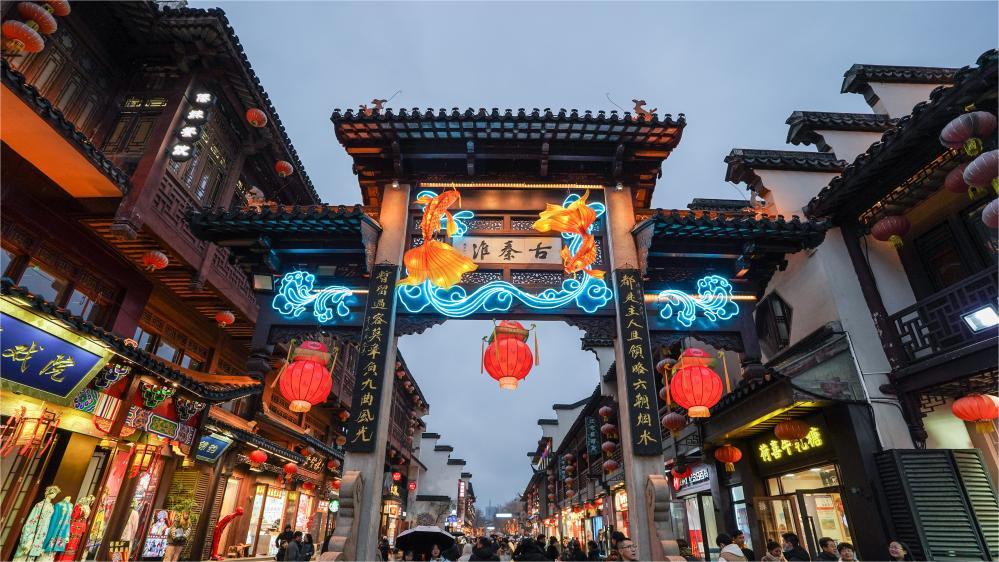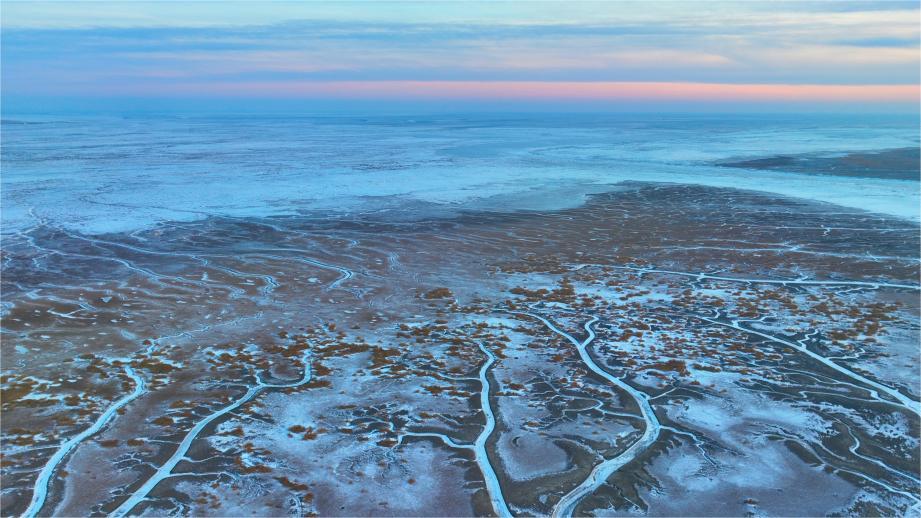Efforts underway to ensure safe, smooth holiday trips
Holding two sacks and a shovel, traffic police officers Cao Chun and Wu Yulei helped more than 50 cars trapped on a bridge in Wuhan, Hubei province, survive a sweeping blizzard on Saturday night.
They pushed cars for over three hours in the freezing weather, sometimes choking on the exhaust fumes or falling down on the slippery road, but thanks to their efforts, the traffic returned to normal on the bridge by early Sunday morning.
Like Cao and Wu, all traffic police officers in Wuhan have been on duty amid freezing rain and snow. More than 900 patrolling units and 54 police stations have helped maintain traffic movement on major roads and bridges, train services at railway stations and flights at Wuhan Tianhe International Airport, as part of the city government's comprehensive measures to ensure people's safety amid the holiday travel rush.
Freezing rain and snow have battered the city, as well as China's vast central and eastern regions, including Henan, Hunan and Jiangxi provinces, since Thursday. The harsh weather is expected to last for days, according to the National Meteorological Center, which on Sunday issued another orange alert for blizzard.
Orange is the second-highest level of alert in the country's four-tier, color-coded weather warning system.
The inclement weather has coincided with the 40-day Spring Festival travel rush, which started on Jan 26, posing serious challenges for both travelers and service providers.
To brace for the harsh weather and potential disasters during the holiday, the general offices of the Communist Party of China Central Committee and the State Council issued a notice on Thursday, urging authorities nationwide to ensure safe and smooth transportation services.
Transportation regulators and service providers, on their part, have adopted a slew of measures to ensure emergency response and guarantee the safety of travelers.
China State Railway Group, the national railway operator, has made efforts to mitigate safety risks by suspending operations or reducing train speeds in several regions, including Hunan, Hubei and Guangdong provinces and Shanghai, the company said on Saturday.
Passengers affected by the suspension of train services are eligible to apply for full refunds of tickets, with additional counters opened at railway stations to facilitate the refunds and also process any requests for change in travel dates.
Meanwhile, inspections of key routes, bridges, tunnels and other critical infrastructure are being conducted by railway departments.
Continuous monitoring of track switches, overhead lines and electric multiple units are also being carried out to ensure good condition of railway equipment and facilities.
Additional staff and equipment have been deployed for snow removal and de-icing operations. Backup diesel locomotives and rescue staff have been deployed at major railway lines and hubs to deal with potential emergencies.
In Henan, where some areas have been badly hit by the weather, all railway stations will stay open around the clock until Monday to offer continuous services for passengers.
The Zhengzhou East Railway Station has activated an emergency response plan, placing mats at the entrances and platforms to prevent passengers from slipping, and deploying additional staff at the inquiry center, Zhao Jingfei, duty head of the station, told China Central Television.
As a result of the adverse weather, many travelers are facing trip delays or cancellations.
According to the Hubei Airports Group, as of noon on Sunday, 315 flights had been canceled at Wuhan Tianhe International Airport.
In the neighboring Anhui province, more than 95 highway toll stations have refused entry to vehicles as of Sunday morning, due to snow and freezing temperatures.
The extreme weather has also led to accidents in some places.
On Saturday night, 22 people were injured, including one critically, after a rain shelter at a tea house in Zhangjiajie, Hunan, collapsed.
A Beijing resident, surnamed Peng, who took a high-speed train on Friday from the Chinese capital to Nanning, Guangxi Zhuang autonomous region, experienced a delay of two hours, which dragged the travel time to more than 13 hours.
"This is the first time that I experienced a delay when traveling by a high-speed train," the 40-year-old said, adding that the long journey was exhausting.
Another Beijing resident, surnamed Liu, canceled her trip to Xi'an, Shaanxi province, in the last minute because of bad weather. "I'd rather avoid waiting at the station with two children," said Liu, who flew to Guangzhou, Guangdong province, instead.
Tang Yong, who drove from Hangzhou in Zhejiang province to Chongqing for the Spring Festival holiday, met with a minor car accident on a highway in Yiyang, Hu-nan, on Sunday morning. "Traffic police officers offered us food and hot drinks, which helped us keep warm amid the freezing weather."
Despite the challenges, efforts are being made to accommodate travelers during this year's travel rush period, which is expected to handle approximately 9 billion trips.
Photos
Related Stories
- Snowfall disrupts transport amid China's travel rush
- Beginning of Spring marked across China
- In pics: celebrations for upcoming Chinese Lunar New Year in Recife, Brazil
- In pics: Lunar New Year celebration event at Metropolitan Museum of Art in New York
- Performers stage dragon dance for upcoming Chinese Lunar New Year in Port Louis, Mauritius
- Drone show lights up the sky
Copyright © 2024 People's Daily Online. All Rights Reserved.









